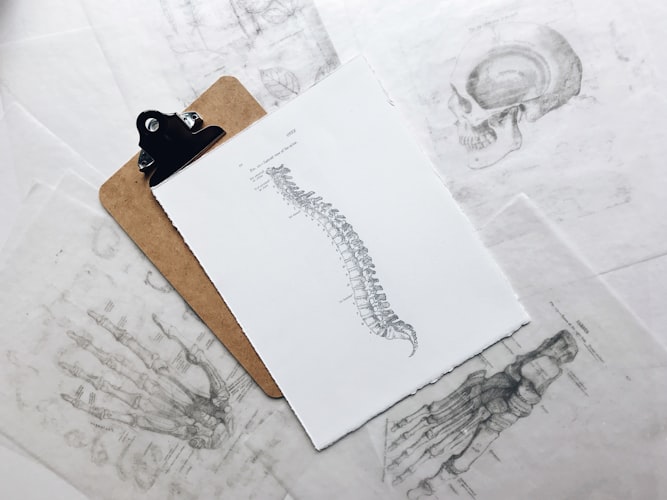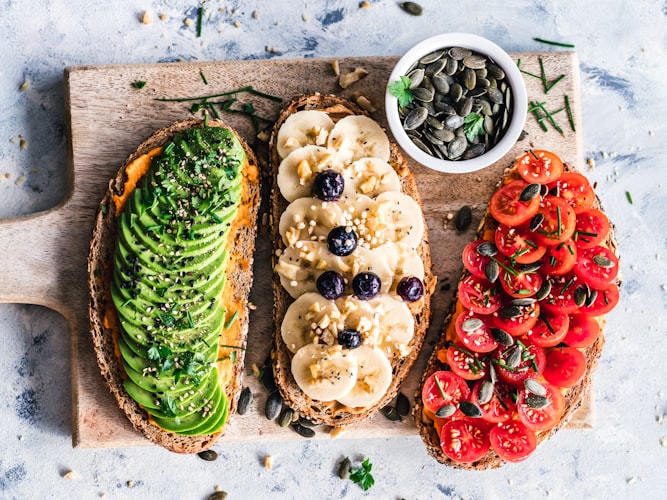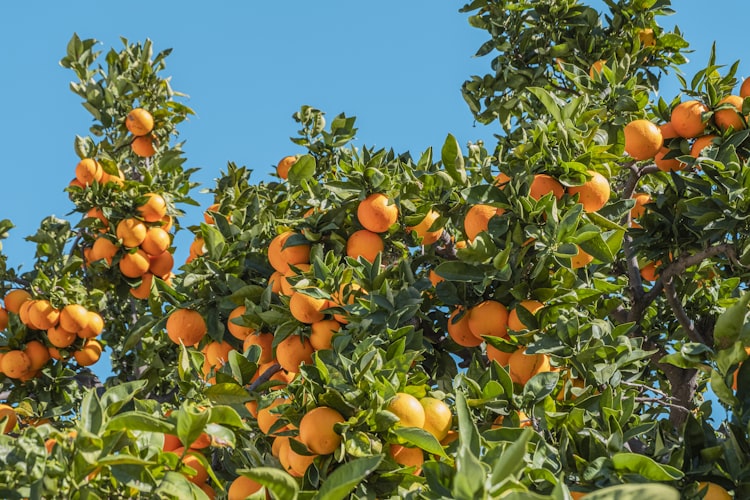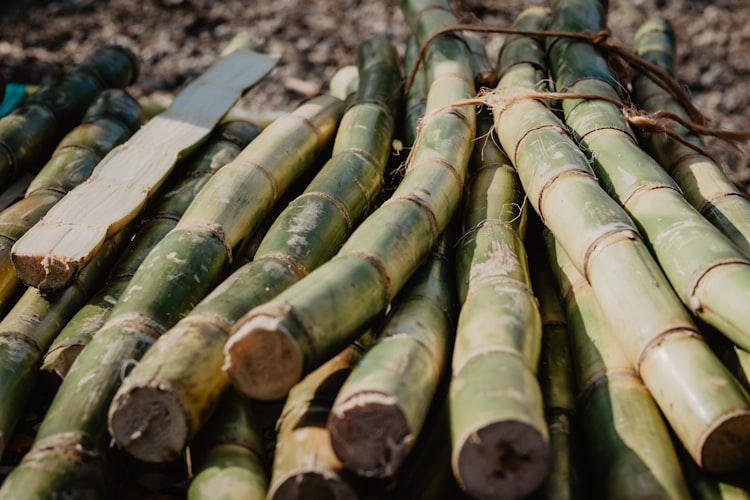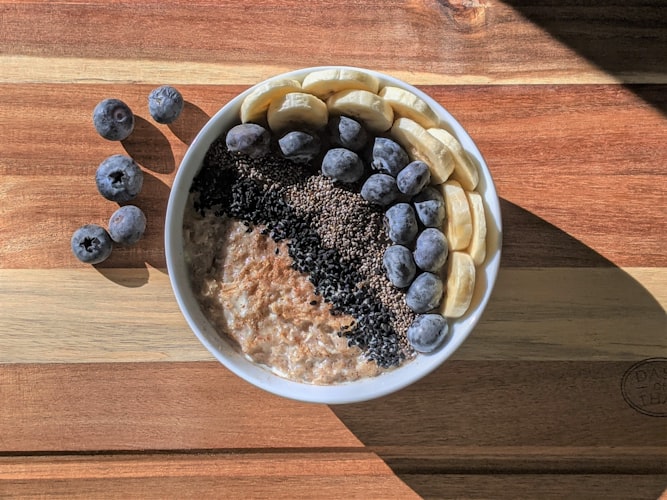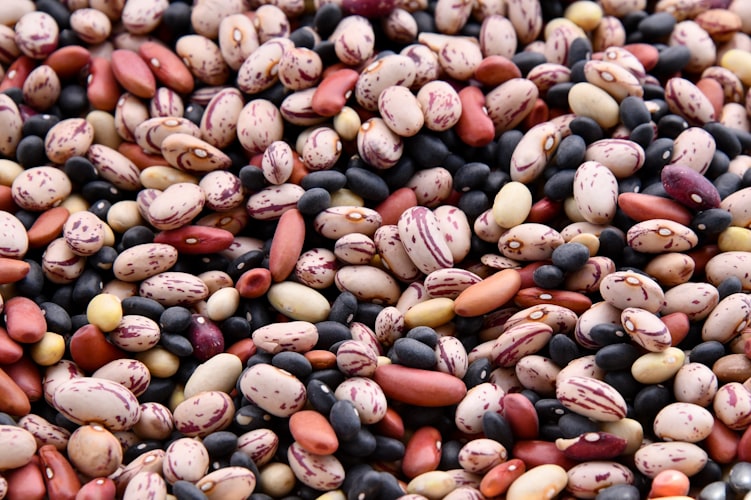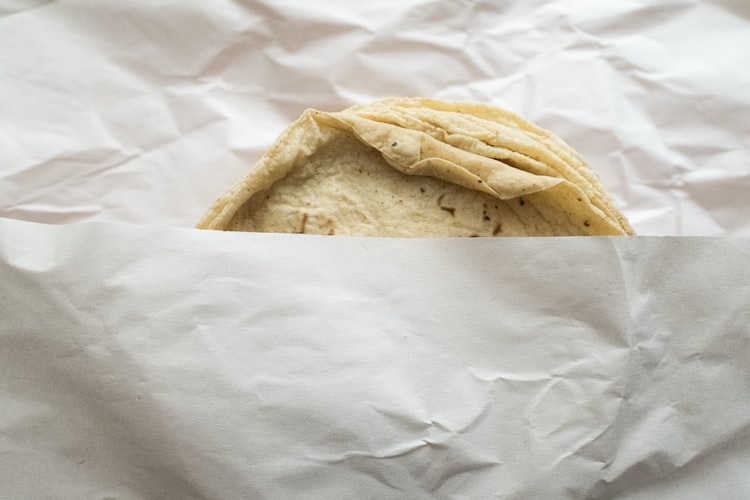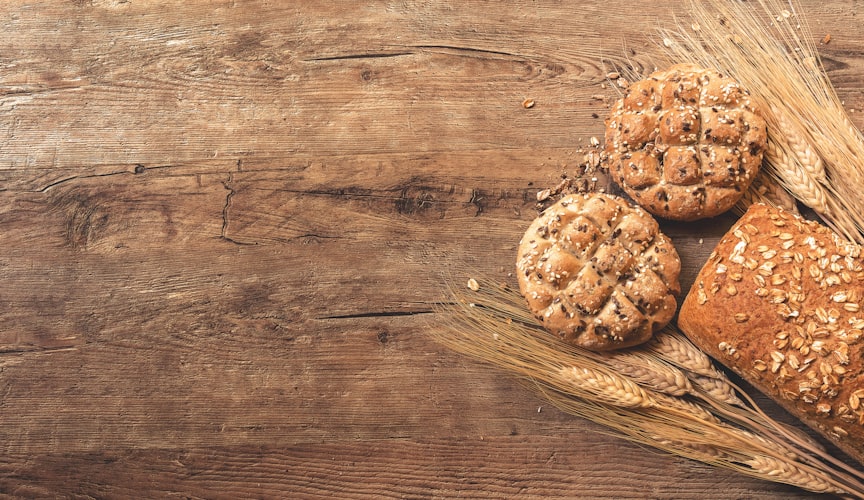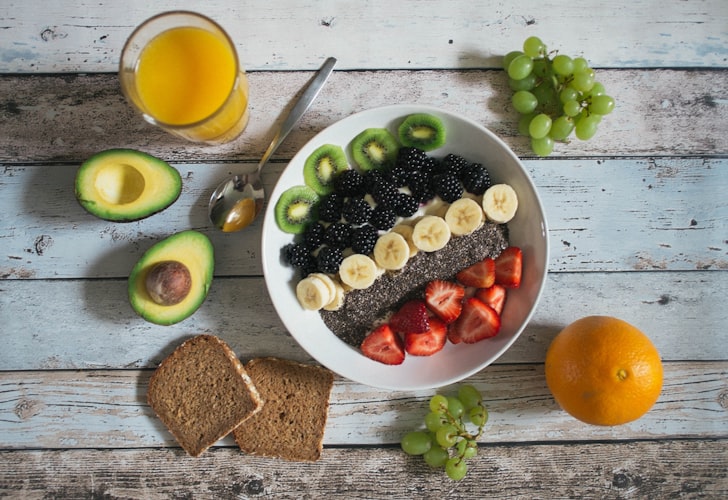
The vegan diet is popularly known for the various health benefits it brings to the table. That being the case, the vegan diet is quite restrictive. The fact that when on a vegan diet, you don’t consume meat or dairy means that you are susceptible to deficiencies if you are not careful. Calcium is mostly sourced from dairy, which means there is a real risk of developing a calcium deficiency when on a vegan diet. We are here to provide you with an informative list of the best calcium sources for vegans.
Calcium is a very important component of a healthy and balanced diet. It is an integral component of bone health and plays a role in various other aspects of the body’s function. Hence, before we dive a little deeper into the various vegan sources of calcium, let’s try to understand a little better why calcium is so important.
Importance of Calcium in Diet for Vegans
Calcium is an integral part of maintaining healthy teeth and bones. It also plays an important role in the health and functioning of nerves and muscle tissues.
The body needs calcium to maintain healthy and strong bones. Without sufficient calcium in your body, the strength of bones will weaken and you will be more prone to fractures from minor accidents. A strong skeletal system prevents us from hurting ourselves from minor falls and ensures that we hold good posture.
Almost all the calcium that you consume is stored in the bones and teeth. It is the calcium that is responsible for the hardness of both teeth and bones. Hence, without calcium, your teeth are more prone to chipping and damage.
Calcium is also an integral part of the muscle and nervous system. It allows for muscles to move efficiently while allowing nerves to carry messages between the brain and other parts of the body. Without sufficient calcium in your body, you are prone to more nerve inactivity and muscle soreness.
Calcium also plays an integral role in blood clotting. Which means it is responsible for a healthy cardiovascular system. Without sufficient calcium in your body, your wounds would take a really long time to heal.
Calcium is also a co-factor for many enzymes, which means they are responsible for the effective functioning of enzymes in your body. Though this may sound like a minor function, it is actually something that is majorly important. Without proper functioning of enzymes in your body, your digestive system as a whole will be working inefficiently, preventing the absorption of essential nutrients in the gut.
As you can see, the importance of calcium is not something that should be underestimated. So what happens when you find yourself on a vegan diet? You find yourself not consuming dairy, which is the primary source of calcium for humans. This means you are more susceptible to developing a calcium deficiency.
Vegan Diet Calcium Deficiency
Knowing the importance of calcium for our bodies, a lack of calcium can lead to developing a calcium deficiency. The vegan diet is restricted which means you don’t consume dairy. This means, there is a greater chance of depriving your body of calcium. This could lead to problems like osteoporosis later in life.
For those below the age of 50, 1,000 milligrams (mg) of calcium a day is considered the recommended value, while those above the age of 50 should seek to intake at least 1,200 milligrams (mg) of calcium.
If the amount of calcium that you are consuming falls below this recommended value, there is a real chance of developing a calcium deficiency. Extremely low levels of calcium in the body could cause tingling in the lips, tongue, fingers and feet. It could also cause muscles spasm of muscles in the throat which could lead to difficulty with breathing.
In more serious instances, a deficiency of calcium could cause seizures and abnormal heart rhythms. Further to this, you could end up having very week bones which could lead to conditions like osteoporosis from developing in later stages of life.
When the calcium concentrations in your blood start to go low, your body will start to take the calcium from your bones and teeth to meet the requirements. This will lead to the weakening of your bones and teeth, putting you at a greater risk of damaging your bones and teeth. You could experience irritated gums, tooth decay and even weak roots due to lack of calcium in your body.
With all this resulting from the lack of calcium in your body, it goes without saying that you have to be extra careful when on a vegan diet. You should try to include as many calcium sources into your diet, to ensure that you are consuming sufficient calcium-rich food. Otherwise, you may have to resort to supplementing calcium through a calcium supplement taken daily.
Best Calcium Sources for Vegans
When it comes to vegan food, though you aren’t consuming any dairy, there are some valuable and reliable calcium sources which if you include into your diet, you could look to attain the necessary calcium for your body.
Here is our list of the 15 best calcium sources for vegans.
1. Seaweed
Adding seaweed into your diet can be a great way to increase the amount of calcium in your diet. Seaweed can be eaten raw or served in dishes. There are a variety of ways in which you can include seaweed into your diet.
Wakame, which is a type of seaweed that is usually eaten raw contains about 126 mg of calcium, which is 12% of the recommended daily intake (RDI), in one cup (80 grams). You can find wakame in many Asian supermarkets and is used to make sushi in sushi restaurants.
Kelp is another type of seaweed that can be eaten raw or dried up. One cup of kelp which is about 80 grams, contains 14% of the recommended daily intake (RDI), which is about 140 mg of calcium. Kelp is a versatile ingredient that you can to your salads and main dishes. Dried kelp flakes can even be used as a seasoning for your dishes.
That being the case, seaweed such as kelp contains a large number of heavy metals such as iodine. Though iodine is important for the proper functioning of the thyroid gland, consuming too much iodine in your diet can be harmful. Hence, when you are looking at seaweed as a calcium source, you want to ensure that you consume it in moderation.
2. Leafy Greens and Vegetables
There are certain types of vegetables that are considered good sources of proteins. Both cruciferous vegetables and bitter dark leafy greens are considered excellent sources of calcium.
Spinach is a good choice when it comes to sourcing calcium. Spinach, bok choy and turnip all provide the body with a good amount of calcium. They contain anywhere between 84-142 mg of calcium in a cooked 1/2 cup.
Okra, kale, cabbage, broccoli and Brussels sprouts are also good calcium sources proving 3-6% of the recommended daily intake (RDI) of calcium.
That being the case, high-oxalate vegetables contain anti-nutrients that bind to calcium in the gut, which prevent the calcium from being absorbed in the gut. A study showed that your body only actually absorbed 5% of the calcium from high-oxalate vegetables. Hence you should look to source your calcium from low to moderate oxalate vegetables such as turnip greens, broccoli and kale. Though spinach is a good source of calcium, it is a higher-oxalate vegetable.
Boiling works to reduce oxalate levels by 30-87%. Hence, it is considered the better means to prepare your vegetables in comparison to steaming or baking.
3. Certain Fruits
Some fruits are a great source of calcium. Based on the fruit that you are consuming, you could look to consume a good amount of calcium.
Raw figs are a good source of calcium, providing your body with 18 mg of calcium per fig. With the daily recommended intake of calcium at 1,000 milligrams, you would have to consume a whole lot of figs to attain the amount of calcium that your body needs. That is why it is important to include as many calcium sources in your diet as possible.
Oranges are another source of calcium that is considered more valuable than figs. They contain about 48-65 mg of calcium per medium-sized fruit. Blackcurrants, blackberries and raspberries are also good sources of calcium, providing your body with 32-65 mg of calcium in a one-cup serving. That still would be a whole lot of fruit that you would have to eat to attain the necessary amounts of calcium.
4. Fortified Plant-Based Drinks and Food
Fortified means that calcium has been added during the manufacturing process. While this isn’t as natural as eating a bowl of raspberries, it is a very reliable means to acquire a greater portion of your daily recommended intake (RDI) of calcium.
Fortified foods such as plant-based yoghurt and certain types of cereal can be found in the market. They contain a good amount of calcium per serving and can be an easy way to ensure that you are getting a sufficient amount of calcium.
Flour and cornmeal are also sometimes enriched with calcium, which means you have the chance to attain necessary calcium through baked goods like bread and crackers. They contain a large amount of calcium and can be an exceptionally reliable source to attain the recommended daily intake (RDI) of calcium.
Plant-based milk is another fortified drink that makes it easy to attain a good amount of calcium in your diet. 1 cup (240 ml) of fortified plant-based milk usually provides the body with 30% of the recommended daily intake (RDI) and provides your body with about 300 mg of highly absorbable calcium. You would have to eat a whole lot of bok choy and raspberries to meet the value of fortified plant-based milk.
Fortified orange juice is even better, with 1 cup (240 ml) providing you with 50% of the daily requirements. This means, drink two cups of fortified orange juice a day and you are good to go.
Not all plant-based milks are fortified. Hence, when you are looking for fortified foods and drinks, make sure to check the label to ensure.
5. Blackstrap Molasses
This is a sweetener that brings with it a great nutritional profile. It is made of sugar cane and contains various vitamins and minerals, unlike sugar.
Each tablespoon of blackstrap molasses contains 179 mg of calcium which is 18% of the recommended daily intake (RDI). It is also loaded with iron, selenium, vitamin B6, magnesium and manganese.
Though it is a reliable source of calcium, blackstrap molasses is still a sweetener which means it is very high in sugar. Hence, be sure to include it in your diet in moderation.
6. Amaranth and Teff
Grains are not typically considered valuable calcium sources. However, there are certain types of grain such as amaranth and teff which are considered good additions to your diet to source calcium.
Both these gluten-free ancient grains provide about 12% of the recommended daily intake (RDI) in one cooked cup which is about 250 grams. They are both excellent sources of fibre and can be incorporated into various dishes.
Teff can be made into porridge, while amaranth works really well as a substitute for rice. You can ground both into flour and use it to thicken sauces and soups.
7. Seeds and Seed Butters
Seeds and seed butters are good sources of calcium. While they are good sources of calcium, the amount of calcium depends on the seed and variety.
Tahini is a butter that is made from sesame seeds and contains about 130 mg of calcium in 2 tablespoons (30 ml). This amounts to about 13% of the recommended daily intake (RDI) of calcium. Though seed butter is a rich source of calcium, the same quantity of sesame seeds (20 grams) only provides 2% of the recommended daily intake.
When looking for seeds with a good amount of calcium, chia and flax seeds are your best bet. They contain decent amounts of calcium providing your body with 5-6% of the recommended daily intake (RDI) per 2 tablespoons (20-25 grams).
Seeds are a reliable source of fibre, protein and healthy fats. They also contain valuable vitamins and minerals and is considered very healthy for you. They bring with them a host of various health benefits including reduced risk of heart disease and reduced inflammation.
8. Almonds and Brazil Nuts
Though all nuts contain trace amounts of calcium, almonds and Brazil nuts are especially great for sourcing calcium. Almonds are rich in calcium and provide 97 mg of calcium in a 1/4 cup serving (35 grams). This is about 10% of the recommended daily intake (RDI).
While not as valuable as almonds, Brazil nuts also provide the body with a good amount of calcium. A 1/4 cup serving (35 grams) contains about 6% of the recommended daily intake (RDI), which is about 57 mg of calcium.
Nuts are a great source of fibre, healthy fats and protein and are rich in antioxidants. They contain a good amount of vitamins and minerals and eating nuts regularly can help you lower blood pressure and reduce the risk of heart disease.
9. Legumes
Beans, peas and lentils are a rich sources of fibre and protein and are considered valuable sources for calcium. Goa beans provide the body with the highest amount of calcium at 26% of the recommended daily intake (RDI) in a single cup serving (175 grams). This is about 260 mg of calcium.
Including legumes such as beans and chickpeas can be a great way to source a good amount of calcium. Since you tend to eat beans and lentils in large portions, the amount of calcium that you can source is greater.
While goa beans provide the body with 26% of the recommended daily intake (RDI), the same serving of chickpeas only provide 9% of the recommended daily intake (RDI). Even then, chickpeas can be a good source of calcium. White beans, navy beans, black beans and kidney beans are all good sources with goa beans being the most valuable source of calcium.
Beans and lentils are rich in other nutrients and can be excellent additions to a vegan diet. They contain iron, zinc, potassium, magnesium and folate. That being the case, they do contain anti-nutrients that lower the body’s ability to absorb other nutrients. Soaking and fermenting beans and lentils can work to reduce the anti-nutrient levels, making them more nutritious.
10. Soy Foods
Soybean is a natural source of calcium and can be very valuable on a vegan diet. One cup (175 grams) of cooked soybeans contains about 18.5 % of the recommended daily intake (RDI), which is about 185 mg of calcium.
Food that is made with soybeans is also an exceptional source of calcium. Tofu which is made with calcium phosphate and contains about 350 mg per 100-gram serving. Hence, much like fortified foods and drinks, soy foods should be considered a staple addition to the vegan diet to ensure that you are attaining the necessary levels of calcium.
Tempeh and natto which is made from fermented soybeans is also a great source of calcium. A 100-gram serving of tempeh provides about 11% of the recommended daily intake (RDI) which is about 110 mg of calcium.
Soybeans are one of the few plant-based foods that provide the body with all nine essential amino acids. Hence, it should be a valuable addition to the vegan diet that should not be avoided.
11. Whole-Wheat Tortilla
Tortilla is a great calcium source that is easy to include in a vegan diet. There are endless ways in which you can prepare tortillas and they can be a reliable source of calcium.
One whole-grain tortilla can contain up to 100 mg of calcium, which is about 10% of the recommended daily intake (RDI). When you eat tortillas, you often eat more than one. This is a good way to get a good amount of calcium.
However, you have to ensure that you choose whole-wheat varieties which pack a good amount of calcium, fibre, protein and vitamins in comparison to ones made with white flour.
12. Dried Herbs
Herbs are used in various ways when preparing meals. You can add them to salads to stir-fries and can make your sauces taste amazing. Whether it is dried basil or dried oregano, they all contain a good amount of calcium which is very valuable.
One tablespoon of dried oregano for instance contains about 80 mg of calcium. Dried basil tops the list with about 105 mg of calcium in each tablespoon.
Hence, don’t hold back on the herbs. They can make your dishes tastier and can also provide your body with a good amount of calcium.
13. Bread Products
Bread contains calcium and the amount of calcium that you attain through bread depends on the type of bread that you eat. It can be a reliable source of calcium and can provide your body with a good amount of calcium in a few slices.
An 80-gram portion of wheatgerm bread which is about two slices contains about 168 mg of calcium. White pitta bread in the same quantity provides you with 110 mg of calcium.
Though not as amazing as fortified drinks and food, bread and bread products can be a good source of calcium on a vegan diet. Make sure to check the calcium content of the bread and pick something that provides you with a good amount of calcium per slice.
14. Vegan Sausages
Vegan sausages are healthy and yummy and are also a good source of calcium. A 100-gram serving contains about 136 mg of calcium.
The amount of calcium depends on the brand. You should check the label for the calcium content to be sure. That being the case, vegan sausages are a good way to attain a good portion of calcium.
There are many ways you can prepare vegan sausages. It is versatile and can be a great addition to the vegan diet.
15. Veggies Burgers
Veggie burgers can also be a great way to source some valuable calcium. A 100-gram serving of a veggie burger would contain about 100 mg of calcium, which is 10% of the recommended daily intake (RDI).
Veggie burgers are enjoyed by many vegans and can be a great addition to a vegan diet. They can be prepared in a variety of ways and can be served with various sauces and toppings.
Based on the brand of veggie burger or what you use to make the veggie burger, the calcium content will vary. Hence be sure to check beforehand to ensure that you are getting a good amount of calcium in your veggie burger meal.
How to Source Recommended Daily Intake (RDI) of Calcium on Vegan Diet?
When on a vegan diet, you have to get your hand on some fortified plant-based milk or orange juice. This is the best way to get the bulk of your calcium requirements. Simply make sure to consume about 2 glasses of fortified orange juice or 3 cups of fortified plant-based milk. This will provide your body with ample calcium to meet the recommended daily intake (RDI).
We state fortified drinks as important because it is the safest way to ensure that you are getting a good amount of calcium. It isn’t easy to measure everything you eat, which means it would be very difficult to measure the amount of calcium that you are consuming. Though there are a variety of sources of calcium on a vegan diet, you should look to the major sources and include them.
This means fortified drinks, tofu, lentils, peas, leafy greens and oranges. Adding all these elements into your diet will ensure that you are getting a good amount of calcium on a daily basis.
To Conclude
Though at first, it may have seemed overwhelming, sourcing calcium on a vegan diet doesn’t have to be difficult. You just have to make a plan and map out the base of your calcium intake and ensure you consume them on a daily basis. This might mean, three glasses of fortified plant-based milk or 2 glasses of fortified plant-based orange juice.
Regardless, once you have the base of your requirement in place, everything else just becomes much easier. Sourcing calcium on a vegan diet doesn’t have to be difficult. You just need the information and the planning necessary to ensure that you are consuming the right foods to source the right stuff.
The purpose of this article was to inform you of the importance of calcium and how to go about sourcing calcium on a vegan diet. We hope you found this article informative and that reading this word to word had helped you better understand how to source calcium on a vegan diet.
Happy Munching!




